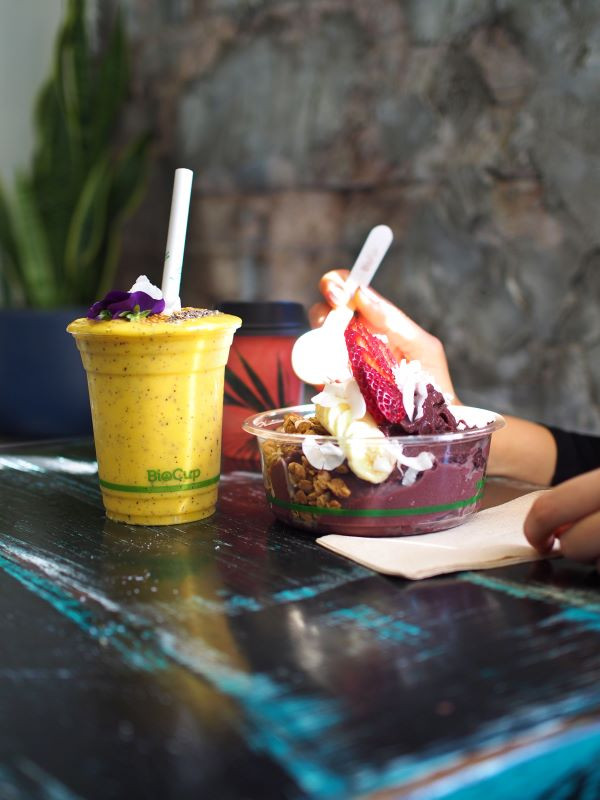
Bioplastics vs Conventional Plastics - A Refresher
8th Jul 2020
Determining what products are truly sustainable and why can be very difficult. Here, we give a short refresher on why bioplastics are better than conventional plastics.

Bioplastics
Bioplastics come from renewable resources like sugarcane, rather than from non-renewable fossil fuels. BioPak agrees that to be 100% sustainable, customers should BYO coffee cups, plates, cutlery, rather than using disposable items. However, sometimes this is not convenient or practical, which is when food service disposables are the best option. And, when this is the case, we suggest disposable products made from renewable materials rather than fossil resources, which are non-renewable and contribute to climate change. Bioplastics are made from sugarcane, algae, or plant starch – all we need, really, is a suitable source of carbohydrates to make this alternative plastic. Bioplastics can be recycled the same as conventional plastics – but they can also be composted.
Greenwashing
Labelling plastic items as 'degradable' or 'biodegradable' is unsustantiated and therefore known as greenwashing. Various claims and technical terms on the market can make it a very confusing landscape to navigate, especially with some marketers attempting to 'greenwash' their products and convince customers that they are better for the environment. The most common greenwashing plastic products experience are when they are labelled as 'degradable' or 'biodegradable'. Degradable plastics are conventional plastics (from fossil fuels) with an additive that causes the plastic to fragment after use. There are multiple problems with this. Marketers claim that their products conform to specific guidelines – however, testing a product in accordance with a specific test method that contains no pass or fail criteria in no way verifies that the product is biodegradable. The other problem is that there is no conclusive proof that the microscopic plastic fragments completely biodegrade. These microplastics can be very harmful in the environment: they can be ingested by organisms and make their way up the food chain.
A circular economy
By composting bioplastics, we can create a circular economy and a sustainable future. It is no longer sustainable to perpetuate the concept of producing products using a linear approach of extracting non-renewable fossil fuel resources to make a material that will be used once before being disposed of in landfill. Instead, we need to take our cues from nature and create products using a closed-loop approach, choosing renewable biological resources that at the end of their useful life rapidly biodegrade (properly!) and return nutrients back into the ground.
Information taken from BioPak's website. Read about how Australia cafe owners are being supported and why switching to BioPak makes a difference, on our blog. See here to learn what products we sell.
Planet Friendly Packaging acknowledges the traditional custodians on the land on which we work. Our thoughts go out to everyone affected during COVID-19. Stay safe.

